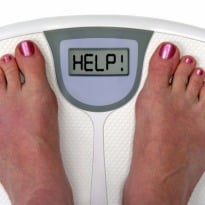The findings of a survey in the US indicate that the inability to control emotions could throw weight loss programmes off kilter. In a survey conducted by the Consumer Reports National Research Centre, more than 1,300 licensed psychologists were asked how they dealt with clients' weight and weight loss challenges. Psychologists cited the need to "Understand and manage behaviours and emotions related to weight management" as essential in addressing weight loss (44 percent), the journal Consumer Reports Magazine reports.
"Anyone who has ever tried to lose a few pounds and keep them off knows that doing so isn't easy," said Norman B. Anderson, chief executive officer of the American Psychological Association (APA). "The good news is that research and clinical experience have shown that in addition to behavioural approaches, cognitive behavioural therapy that targets emotional barriers helps people lose weight," Anderson added. Cognitive therapy helps people identify and address negative thoughts and emotions that can lead to unhealthy behaviours, according to an APA statement. Survey respondents also cited "emotional eating" (43 percent) as a barrier to weight loss, and included "maintaining a regular exercise schedule" (43 percent) and "making proper food choices in general" (28 percent) as key to shedding weight. In general, gaining self-control over behaviour and emotions related to eating were key to maintaining a weight-loss regime. Ninety-two percent of the 306 respondents who provide weight loss treatment reported helping a client "address underlying emotional issues related to weight gain." More than 70 percent identified cognitive therapy, problem-solving and mindfulness as "excellent" or "good" weight loss strategies.
Advertisement








